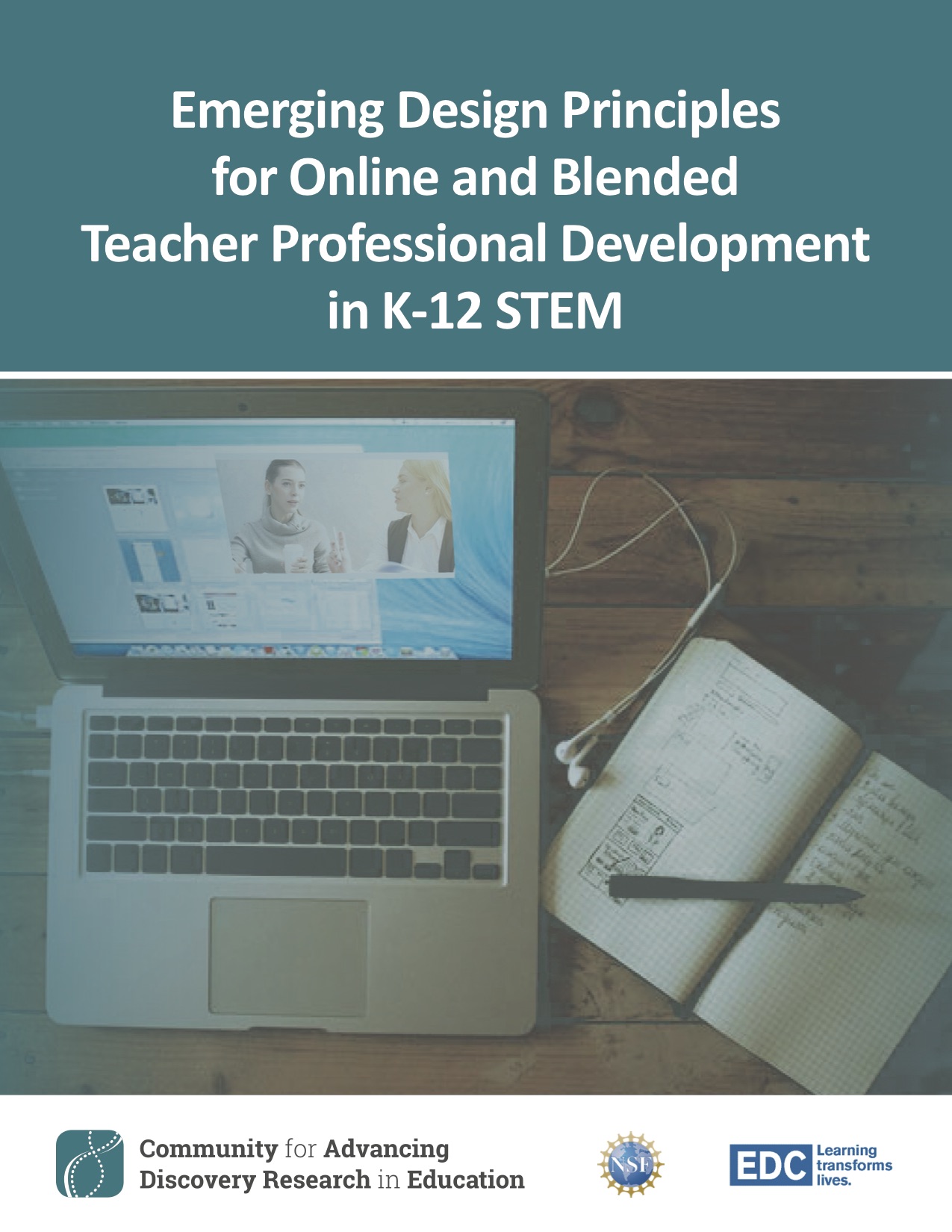Emerging Design Principles for Online and Blended Teacher Professional Development in K-12 STEM Education
Between February and September 2017, awardees representing 11 projects participated in a series of activities designed to elicit and form consensus around emerging design principles for online and blended teacher PD programs in K–12 STEM education. The resulting principles are organized and presented around three themes:
Following the launch of Spotlight on Online & Blended Professional Development (PD), CADRE convened awardees representing 11 DRK-12 projects in a series of activities designed to elicit and form consensus around emerging design principles for online and blended teacher PD programs. The resulting principles are presented in a new report.
